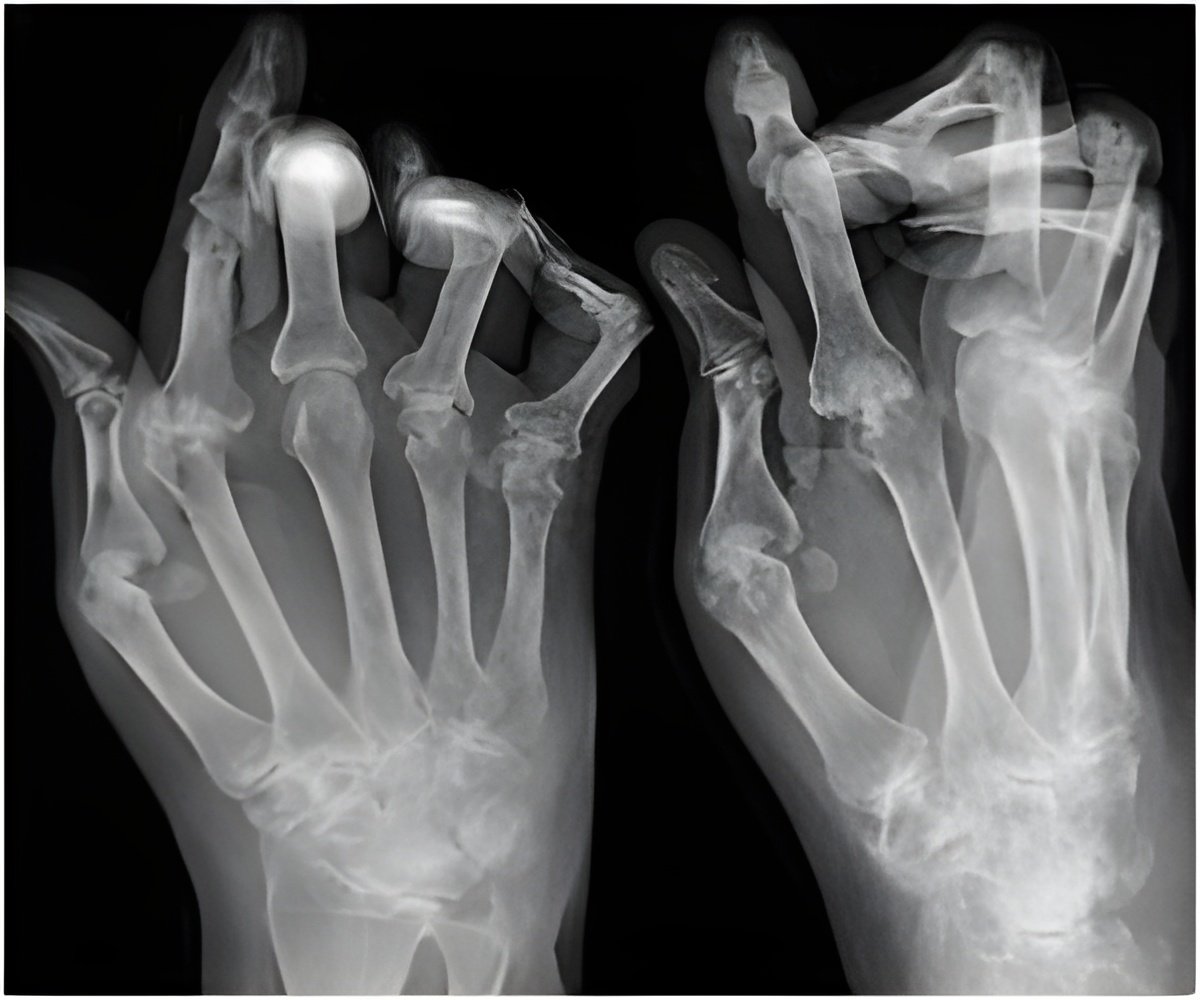
The authors add that because these biologic agents interfere with the immune system, concerns exist regarding their safety, specifically with respect to infections and malignancies. "Since 2005, conflicting data have existed associating tumor necrosis factor (TNF) inhibitors with an increased risk of developing certain types of malignancies."
Maria A. Lopez-Olivo, M.D., Ph.D., of the University of Texas MD Anderson Cancer Center, Houston, and colleagues conducted a study to evaluate the risk of developing any type of malignancy in patients with RA receiving treatment with BRMs. The authors searched the medical literature to identify randomized controlled trials that included the BRMs abatacept, adalimumab, anakinra, certolizumab, etanercept, golimumab, infliximab, rituximab, and tocilizumab. Studies were selected that compared the safety of any BRMs used in RA patients with placebo and/or any traditional DMARDs with a minimum of 24 weeks of follow-up.
The researchers identified 63 RCTs with 29,423 patients for inclusion in the analysis. No statistically significant increased risk of developing malignancy was observed. Of the 29,423 patients, 211 developed a malignancy during the trial (0.72 percent): 23 of 3,615 patients in the BRM monotherapy group (0.64 percent), 123 of 15,989 patients in the BRM combination therapy group (0.77 percent), and 65 of 9,819 patients in the control group (0.66 percent).
"Of the 211 malignancies, 118 were solid tumors (i.e., adrenal, bladder, breast, cholangiocarcinoma, fibrosarcoma, gastrointestinal, hepatic, leiomyosarcoma, liposarcoma, lung, ovarian, pancreatic, prostate, renal, testicular, thyroid, tongue, uterine), 48 were skin cancers (i.e., basal cell, squamous cell, and 4 melanomas), 14 were lymphomas, 26 were not specified, and 5 were hematologic nonlymphoma (i.e., multiple myeloma, leukemia)," the authors write.
No statistically significant risk was observed for specific cancer sites. Anakinra plus methotrexate showed lower odds compared with methotrexate alone.
Advertisement
Advertisement













